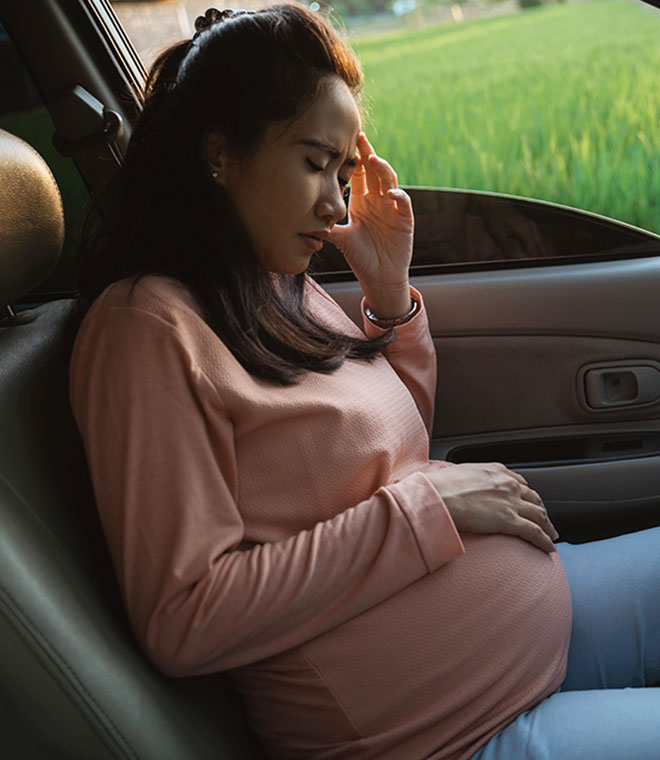Health
Car sick symptoms: What you should know
By Robert A. Fried, MD Jul 01, 2022 • 3 min
Car sickness is a type of motion sickness that can develop when you’re riding in a car or similar vehicle, although various forms of travel, including airplane, boat and train, can all produce the same symptoms of motion sickness. While anyone can get car sick, the condition is most common in children ages 2 to 12. Women are also affected more often than men. Understanding the symptoms of car sickness can help you detect when someone in your vehicle may be getting car sick. There are a number of car sick remedies that can help.
What are the symptoms of car sickness?
In most cases, an adult with car sickness starts feeling generally unwell and then may develop any of the following symptoms:
- Nausea
- Vomiting
- Dizziness
- Cold sweats
- Loss of appetite
- Excessive salivation
- Drowsiness
- Headache
- Increased sensitivity to odors
- Warm sensation
Children who are too young to express how they’re feeling may show other signs of car sickness, including:
- Restlessness
- Pale skin
- Yawning or crying
- Lack of appetite
How long do car sick symptoms last?
The symptoms of car sickness almost always go away once the trip is over and the car stops. There is a very rare condition called Mal de Débarquement Syndrome—French for "disembarkment syndrome"—in which people continue to experience motion sickness symptoms after the end of their airplane, ship or car travel. Effective treatment options for this unusual medical condition are still being explored.
Consult your healthcare provider if car sickness symptoms are worsening or are difficult to manage. Your provider may recommend treatments for motion sickness.
Published June 2022.



